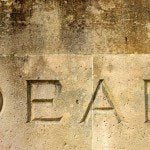
A reading from the Holy Gospel for Christ the King Sunday:
The rulers sneered at Jesus and said,
“He saved others, let him save himself
if he is the chosen one, the Christ of God.”
Even the soldiers jeered at him.
As they approached to offer him wine they called out,
“If you are King of the Jews, save yourself.”
Above him there was an inscription that read,
“This is the King of the Jews.”
Now one of the criminals hanging there reviled Jesus, saying,
“Are you not the Christ?
Save yourself and us.”
The other, however, rebuking him, said in reply,
“Have you no fear of God,
for you are subject to the same condemnation?
And indeed, we have been condemned justly,
for the sentence we received corresponds to our crimes,
but this man has done nothing criminal.”
Then he said,
“Jesus, remember me when you come into your kingdom.”
He replied to him,
“Amen, I say to you,
today you will be with me in Paradise.”
Here is the king high exalted above all kings, the God incarnate, all powerful, all knowing, the Glory before which the seraphim hide their eyes.
He promised to gather all people to Himself, once He was lifted up from the earth. And now He is lifted up from the earth.
What does it mean?
Here is the Splendor of the Father, naked, filthy, torn to shreds, dangling from a wooden scaffold by two iron spikes through His wrists. Below Him are the pagan invaders who raped and pillaged the county. They are the ones who lynched Him. They’re waiting for Him to suffocate, but they don’t want it to happen too quickly. With them are the devout, the righteous, the people who believe exactly what they ought, and they are enjoying the spectacle, taunting, heckling. Here at the foot of the cross stand all of humanity.
Here on either side of God are two other human beings, the worst humanity has to offer. They are robbers, criminals who made themselves such a nuisance that the conquerors made an example of them too, and nobody objected. They are being punished, and God hangs among them. God is being punished as well.
God is not on the ground with the conquerors or the people who believe what they ought. He is neither with the spiritually powerful or with those who wield earthly power. He is apart from the ones who have every correct answer and the ones who don’t know their theology. They have to crane their necks and look up to see God. God is being tortured to death among robbers.
They lynched the Son of God at noon, when the sun was right overhead and they had to squint to look up at what they’d done. Now it’s nearly three, and the clouds are gathering. They can look on what their hands have done. They look up at a nauseating spectacle: three naked men, bleeding and strangling in the air. Two robbers and a blasphemer. One of them is God.
“He saved others, let him save himself.”
But God doesn’t save Himself.
One of the robbers, Gesmas, gets in on the act. He wants to be like the people who lynched him. He taunts as well, and well he might. “Are you not the Christ? Save yourself and us?” and we don’t know what happened to that robber. The Gospel doesn’t actually say he went to hell. God said nothing to him, not on this side of the veil. His fate is a mystery.
The second robber, Dismas, rebukes the first. “This man has done nothing criminal.”
Dismas has no earthly power at all. He is pinned to a rough piece of wood. Pretty soon they’ll shatter his ankles to hasten his death, and that will be the end. He doesn’t have right belief either. He doesn’t know who this blasphemer is. He doesn’t profess a single line of any creed. He only proclaims that God is innocent, because he has the tiniest inkling of a conscience. He knows that preaching a sermon that offends theologians isn’t the same thing as the crimes he committed. He knows that what’s happening to God is unjust.
And then he turns to the blasphemer, the madman hanging between two violent criminals, and he says, “Jesus, remember me, when you come into your kingdom.”
Maybe he had a glimmer of faith, and thought that what God said was true.
More likely he was sorry for the crazy blasphemer he saw hanging next to him, and just wanted to say something kind.
And then the madman, the victim obscenely tortured, turned to Dismas.
“Amen, I say to you, today you will be with me in Paradise.”
And the first of the saints which we know are saints, the first to be declared safe on that terrible Friday when the gates of hell were smashed, was Dismas the robber. Dismas the robber, a man who never did anything good until the last moment of his life, was the first to be pardoned at the fulfilling of the Law. The man who knew nothing and did nothing right until he said a kind word to a madman while they were both being lynched, is the first.
When He was lifted up from the Earth, God gathered all people to Himself, starting with Dismas the robber.
What happened to those other men, the men mocking Him, we do not know. But whatever came next began with Dismas.
What we will be in the world to come has not yet been revealed. But when God made His dwelling among us, the powerful and the knowledgeable tortured Him to death, and He allowed Himself to be tortured to death. The devout and the profane worked together to lynch Him, and He allowed Himself to suffer along with those who were lynched. And the first one He welcomed to the new Creation was a terrible, evil, worthless man who offered a single word of kindness.
Whoever has ears, let him hear.
image via Pixabay
Mary Pezzulo is the author of Meditations on the Way of the Cross, The Sorrows and Joys of Mary, and Stumbling into Grace: How We Meet God in Tiny Works of Mercy.












